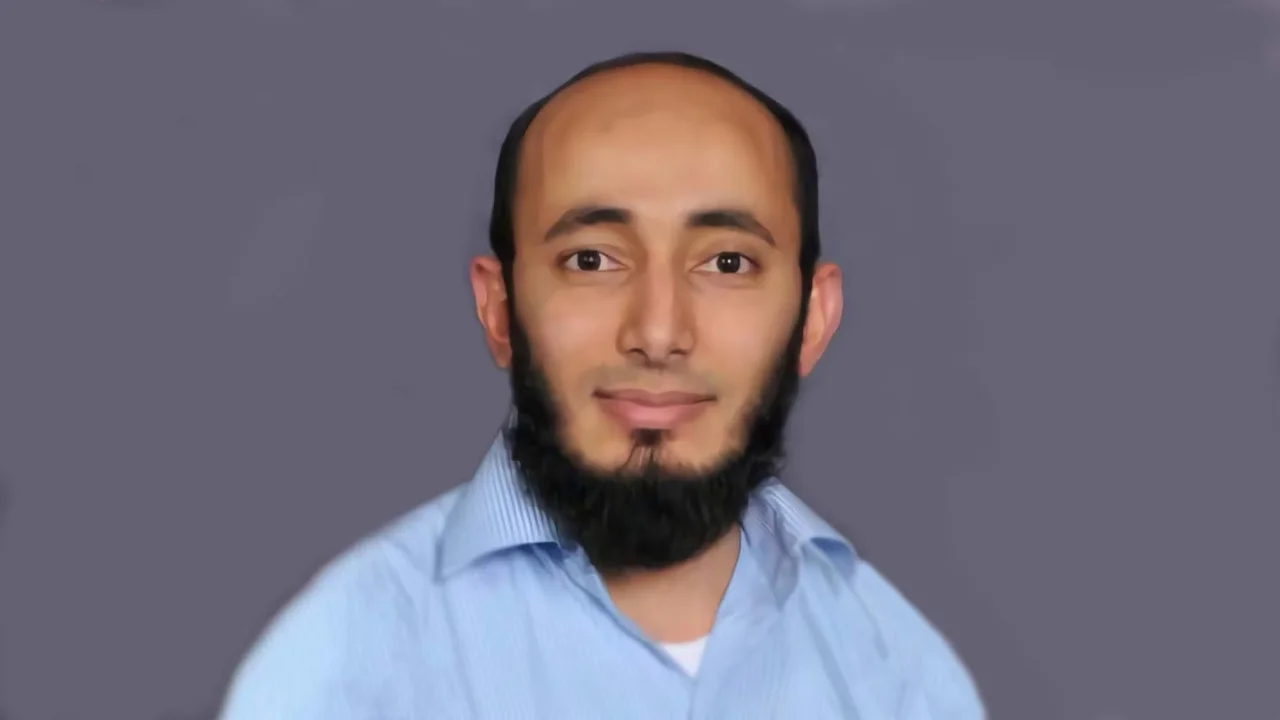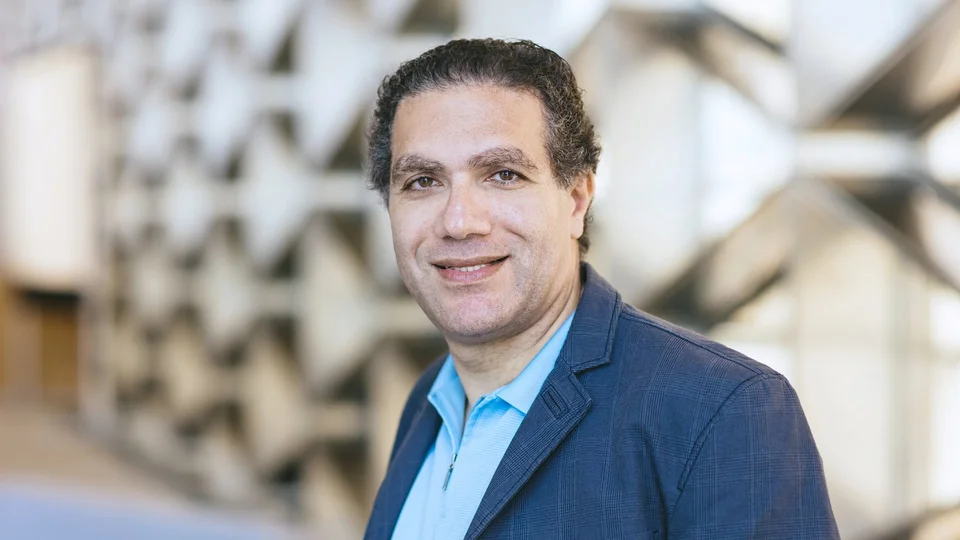
Mahmoud Ouda
- Postdoctoral Research Fellow, Sensors
- Ph.D., Electrical and Computer Engineering
About
Mahmoud Ouda is currently a Postdoctoral Research Associate with the Communications and Signal Processing Group (CSP), Department of Electrical and Electronic Engineering at Imperial College London. He received his Ph.D. from King Abdullah University of Science & Technology (KAUST), Saudi Arabia in 2016, and his M.Sc. and B.Sc. (with honors) both in Electronics and Communications Engineering from Ain Shams University, Cairo, Egypt, in 2011 and 2006 respectively. He was a Graduate Research Assistant with the Sensors Lab. in King Abdullah University of Science & Technology (KAUST) from 2010 to 2016, where he innovated, designed and implemented wireless power receivers for biomedical implants ( Included three successful chips- one US Patent - four IEEE journals and two IEEE conferences).
Research interests
Mahmoud's research interests include RF Energy Harvesting, Wireless Sensors Network, Analog Mixed/RF IC Design, Power Management, Digitally Assisted Analog Circuits, RF PCB & high-speed PCB design and Parallel EDA circuits simulators.
Why did you choose KAUST?
A few years ago, it was only a dream to have a graduate school like KAUST in the Middle East with very high-class academic standards and cutting-edge laboratories. The University’s location near Makkah and Madinah also attracted me. Because of all of these factors, I decided to start my research journey at KAUST.
How is KAUST helping you to fulfill your dream?
At KAUST we are blessed with amazing research resources, such as the University’s high-end laboratories with state-of-the-art equipment and talented academic and technical staff. I feel fortunate to have joined the KAUST Sensors Lab, where my research interests are perfectly matched and I receive genuine support from the Sensors Lab team, and particularly from my supervisor, Prof. Salama.
What is your research topic?
My research is about fully integrated RF power harvesters ("wireless power receivers"). The wireless power receivers can replace the battery in any micro-system to produce sustainable, battery-less devices. Our main target application is bio-medical implantable devices. We are aiming to produce a sustainable and battery-less bio-medical sensor that can be implanted in the human body once – it would remain in the body for the patient’s lifetime and there would be no need for further surgeries to replace the implanted sensor or its battery, as it is a battery-less device.
Fully integrated wireless power receivers have a lot of applications, such as RFIDs, contact-less smart cards, supply chains, smart buildings, and home automation.
What is your research accomplishment so far?
We have already designed and implemented a microchip as a single chip implantable solution for an intraocular pressure monitor. The microchip contains a fully integrated RF power harvester as a wireless power receiver; this makes it a battery-less sustainable sensor. We designed and measured the sensor chip at the KAUST Sensors Lab and in the Core Labs.
For the research, I was awarded the DOW Sustainability Innovation Student Challenge Award (SISCA) for 2012. My research work on the chip was published as a first-authored publication in the IEEE Transactions on Microwave Theory and Techniques (the top journal in the IEEE Microwave Theory and Techniques Society [MTT-S]) in a special issue of “Bio-medical Applications of RF/Microwave Techniques.” The full system-on-chip was presented at the IEEE MTT-S International Microwave Symposium (IMS) at Seattle, WA (June 2013). This is also the top conference for the IEEE Microwave Theory and Techniques Society.
I also won second place at the Microelectronics Olympiad in 2012 held in Armenia. I competed with 417 participants from 17 countries.
1.M. Arsalan, M. Ouda, L. Marnat, A. Shamim and K N Salama. A 5.2GHz, 0.5mW RF Powered Wireless Sensor with Dual On-Chip Antennas for Implantable Intraocular Pressure Monitoring, IEEE MTT-S International Microwave Symposium (IMS) at Seattle, WA (June 2013).
2.M. Ouda, L. Marnat, A. Shamim, K N Salama. 5.2-GHz RF Power Harvesting Module in 0.18 μm CMOS for Biomedical Implantable Sensors, IEEE Transactions on Microwave Theory and Techniques, vol 61, n 5, pp 2177-2184, 2013
3.L. Marnat, M. H. Ouda, M. Arsalan, K. Salama, A. Shamim. "On-chip implantable antennas for wireless power and data transfer in a glaucoma monitoring SoC," IEEE Antennas and Wireless Propagation Letters (AWPL), vol 11, pp 1671-1674, 2012.
4.A. M. Elshurafa, A.G. Radwan, P. H. Ho, M. Ouda and K. N. Salama "Low Voltage Puzzle-Like Fractal MEMS Variable Capacitors Suppressing Pull-in," IET micro and nano letters, vol. 7, no. 9, pp. 965-969, 2012.
5.Mahmoud Ouda, Emad Hegazi, H.Ragai “Digital Enhancement of Frequency Synthesizers" IEEE International Symposium on Circuits and Systems (ISCAS'10) in France, Paris, (May 31, 2010).
6.Mahmoud Ouda, Emad Hegazi, H. Ragai “Digital On-Chip Phase Noise Measurement,” IEEE 4th International Workshop for Design & Test Conference (IDT'09) (November 2009).
What do you think about the KAUST environment and social life?
KAUST is a wonderful place to live, research, work, and enjoy life. It has a fantastic campus with an amazing view of the Red Sea. However, I feel the KAUST community’s main “special ingredient” is that it empowers and enriches as its members make progressive achievements. KAUST also has a unique and diverse community, so now I have friends from almost every part of the world.
Education Profile
- Ph.D., Electrics and Electronics Engineering, King Abdullah University of Science and Technology (KAUST), Saudi Arabia 2016
- M.Sc., Electronics and Communications Engineering, Ain Shams University, Egypt 2011
- B.Sc., Electronics and Communications Engineering, Ain Shams University, Egypt 2006
